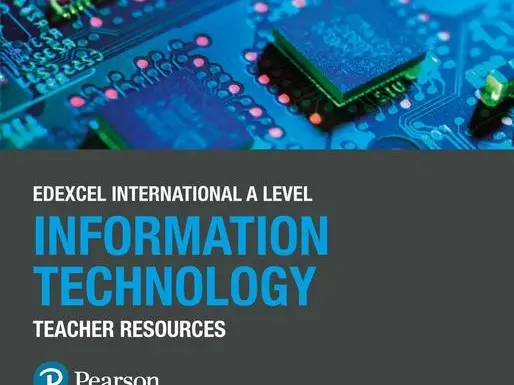
Edexcel A'Level IT
Private Course
Please sign in to contact responsible
| Responsible | Md Samsul Arefin Shamim |
|---|---|
| Last Update | 11/25/2024 |
| Completion Time | 1 day 5 minutes |
| Members | 6 |
Edexcel
Basic
Intermediate
Advanced
-
Syllabus1Lessons · 6 hr
-
International-AL-Information-Technology-Spec
-
-
Notes: Unit-13Lessons · 6 hr
-
Topic 1 Hardware and software
-
Topic 2 Networks
-
Topic 3 The Online Environment
-
-
Worksheet-24Lessons · 4 hr 40 min
-
Topic 1 Hardware and software_new
-
Topic 2 Networks
-
Topic 3 The online environment
-
Topic 4 IT systems
-
-
Worksheet - 2: Answer2Lessons · 4 hr 55 min
-
Topic 1 Hardware and software_new - Answer
-
Topic 2 Networks - Answer
-
-
Worksheet-12Lessons · 2 hr 30 min
-
Unit 1_Chapter 1_ Worksheet
-
Unit 1_Chapter 2_ Worksheet
-
The Edexcel A'Level IT (International Advanced Level Information Technology) is an advanced qualification for students typically aged 16 to 19. It provides an in-depth understanding of both theoretical and practical aspects of information technology, preparing students for further education and careers in the field.
Key Areas of Study
- Theory of Information Technology:
- Data, Information, and Knowledge: Definitions, differences, data processing, and management.
- Hardware and Software: Understanding computer systems, types of software, and their applications.
- Network and Communication: Types of networks, networking hardware, protocols, and security.
- Internet and Web Technologies: Web design, e-commerce, internet services, and security issues.
- System Development Life Cycle: Analysis, design, development, testing, implementation, and evaluation.
- Multimedia: Graphics, animation, sound, and video editing.
- Emerging Technologies: Recent advances in IT and their potential impacts.
- Practical Skills:
- Document Production: Advanced word processing, creating professional documents.
- Data Analysis: Using spreadsheets for complex data analysis, charts, and graphs.
- Database Management: Designing, creating, and managing databases; using SQL for queries.
- Website Authoring: Designing and creating websites with HTML, CSS, and JavaScript.
- Presentation: Creating effective presentations using presentation software.
- Project Management: Planning and managing IT projects using project management tools.
Assessment
The assessment consists of four main components:
- Unit 1: Theory of Information Technology (25% of the final grade)
- Written examination
- Tests theoretical knowledge of IT.
- Unit 2: Practical (25% of the final grade)
- Practical examination
- Assesses skills in document production, data analysis, and database management.
- Unit 3: Advanced Theory (25% of the final grade)
- Written examination
- Tests advanced theoretical knowledge of IT.
- Unit 4: Advanced Practical (25% of the final grade)
- Practical examination
- Assesses advanced practical skills in website authoring, project management, and presentation.
Skills Developed
- Technical Proficiency: Mastery of various IT tools and software.
- Analytical Thinking: Ability to analyze problems and design IT solutions.
- Project Management: Skills in planning, executing, and managing IT projects.
- Communication: Effective use of IT for communication and presentation.
- Digital Literacy: Awareness of current and emerging technologies and their implications.
Resources for Preparation
- Textbooks and Study Guides: Comprehensive materials covering all syllabus topics.
- Online Learning Platforms: Websites offering tutorials, exercises, and past exam papers.
- Software Tools: Access to software for word processing, spreadsheets, databases, web authoring, and project management.
Preparation Tips
- Understand the Syllabus: Ensure you cover all topics outlined in the syllabus.
- Practice Regularly: Use IT tools and software frequently to build practical skills.
- Use Past Papers: Familiarize yourself with the exam format and practice with previous exams.
- Engage in Projects: Work on real-world projects to apply theoretical knowledge practically.
- Join Study Groups: Collaborate with peers to discuss and solve complex problems.